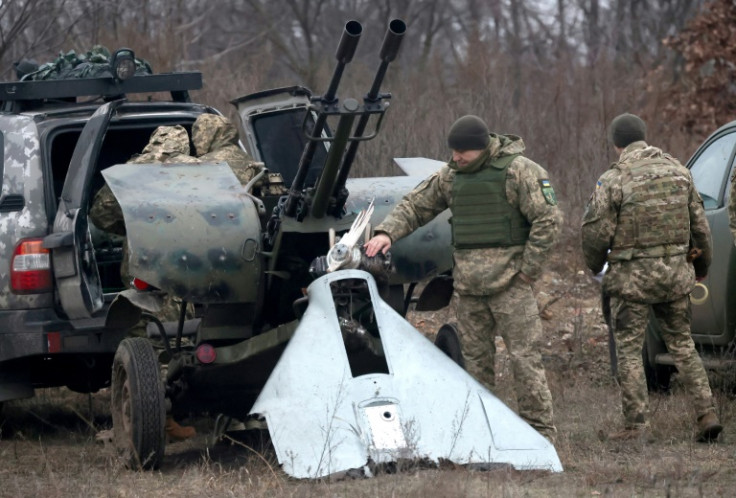
Kyiv's mobile air defenses have enough ammunition to withstand a few more powerful attacks, but then will need more Western aid, a senior military commander said Wednesday.
Late last year, Russia launched its largest missile and drone attacks since the early days of the invasion and again on Tuesday bombarded the capital and the second-largest city of Kharkiv, killing five and injuring dozens.
"The current situation with man-portable air defense systems for mobile air defense groups is that there is enough ammunition to withstand the next few powerful attacks," Sergiy Nayev, commander of the joint forces of the armed forces of Ukraine, told AFP while meeting troops outside Kyiv.
"But in the medium and long term, we need help from Western countries to replenish the missile stock," added the lieutenant-general, who oversees mobile air defense units in Kyiv and Ukraine's northern region, which are armed with portable guns rather than larger systems such as Patriots.
"The priority is more ammunition," he said, since the Russians "really want to deplete our air defense system."
"Of course, we would like more missiles for Patriots and the systems themselves," he said, referring to larger US-supplied surface-to-air missile systems that Ukraine says downed 10 Kinzhal ballistic missiles on Tuesday.
Kyiv says the latest attacks underline the need for Western allies to speed up delivery of air defense equipment, combat drones and long-range missiles.
Soldiers in an air defense unit protecting Kyiv showed off the mobile weaponry they used to down Russian missiles and drones in the latest strikes.
Nayev gave medals to the soldiers and praised their accuracy, telling AFP that on Tuesday, "our effectiveness rate was around 90 percent."
"No other air defense system in the world is capable of showing such results, especially when fighting Russia," he added.
Tuesday's attacks saw parts of a downed missile set off fires that largely destroyed an apartment block near Kyiv's central rail station.
Asked whether people in Kyiv can feel safe, Nayev said: "improving the effectiveness of the air defence system is our task, and we are working on it 24/7".
"Every Ukrainian citizen should know that the military leadership is doing everything in its power to ensure their peace of mind," he stressed.
One soldier, Roman, who operates a "Stinger" anti-aircraft weapon, recounted how he and his team downed two cruise missiles on Tuesday using a US-supplied portable system and a ZU-23 anti-aircraft gun.
"We are working more often now" and Tuesday was "hard," he admitted, especially as his family is in Kyiv.
"My wife and child sleep at home in Kyiv. I understand that I need to work."
With a scarf and hat covering most of his face, Roman said that "we first worked with the Stinger and shot down the first missile."
"Then six minutes later the second missile flew over, and the guys from our unit worked with the ZU-23 on the second missile, also accurately."
Russia has recently used a new tactic, he said.
"The Russians are now firing missiles that release decoy flares during flight, like those on aircraft or helicopters. This has never happened before and this is a problem for Stingers," he said, since they use infrared to hit targets.
Decoy flares are much hotter than a missile's exhaust and can fool defense systems.
"About a month ago, we first heard about it, and now we've even seen it," Roman said, adding that in this case the decoys did not work.




